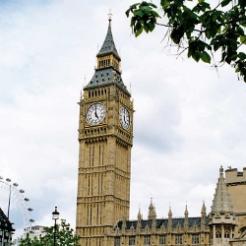The government rejected proposals that the Charity Commission should hold public hearings into fundraising and have direct oversight of the new Fundraising Regulator, during the report stage of the Charities Bill yesterday.
The report stage and third reading of the Charities (Protection and Social Investment) Bill took place yesterday afternoon.
During the hearing opposition MPs brought but failed to pass amendments relating to official warnings, charitable assets and charity campaigning.
New clauses requiring the Charity Commission “to hold annual hearings on fundraising regulation and the workings of charities” and act as “primary guarantor of the regulatory system for fundraising” were tabled to be added to the bill at the report stage by Bernard Jenkin, chair of the Public Administration and Constitutional Affairs Committee, which published its report into fundraising earlier this week.
Paul Flynn, Labour MP for Newport West and member of the PACAC, said: “As members of the committee with supervisory roles over the charities sector, we were tempted to call for new regulations, but we decided unanimously that we did not want to cage the entire charity movement in a new prison of regulation that would limit their powers of innovation.
“Charities have clearly poisoned their own well. So many people have turned not only against the charities involved when that scam was announced last year, but against the whole idea of charity giving, so we want to make the point powerfully in new clauses 4 and 5, which seek to introduce reforms.”
He reiterated that the Charity Commission would require more funding to take these responsibilities. He said: “If it is to do a bigger job, it must have the money restored—30 per cent of its funding was taken away from it.”
Rob Wilson, minister for civil for society, said that requiring the Commission to hold public hearings would “fundamentally change the division of responsibilities between the new fundraising regulator and the Charity Commission” and would “effectively amount to a form of statutory regulation”.
He added that the Commission “can, in theory, already hold hearings in relation to statutory inquiries” but does not because it not the most effective way of carrying out its case work.
Wilson also said that stronger reserve powers for the Commission to take over regulation of fundraising had already been added during the committee stage.
“We would also risk undermining public confidence, if self-regulation were to fail while under the oversight of the Commission, particularly if the solution to that failure was statutory regulation by the Commission,” he said.
The new clauses were not put to a vote. The government also introduced amendments to ensure that the new regulator is paid for by a levy on charities and funded by the taxpayer.
Wilson also said that powers already in the bill, allowing for automatic disqualification of trustees with criminal records for certain offences, would not come into effect until one year after the law is passed and that the Charity Commission is working with rehabilitation charities to discuss how it is implemented.
Several charities that include ex-offenders on their boards of trustees have previously expressed concern about this aspect of the bill.
Turley: ‘Charities are the latest victims of the government’
Anna Turley, Labour MP for Redcar and shadow minister for civil society, tabled a number of amendments.
A clause stating that: “a charity may undertake political campaigning or political activity in the context of supporting the delivery of its charitable purposes” was added to the bill to counter act the effects of the Lobbying Act.
Turley said: “Not only should charities have the right to campaign, but they are often best placed to provide important insights that can inform and improve policy making.”
The clause was put to a vote, losing by 44, with 236 agreeing with it and 280 opposing it.
During the third reading she indicated that the Labour Party would continue to try to overturn the Lobbying Act and said: “Charities are but the latest victims of a government who ride roughshod over the legitimate views and voices of civil society.”
“It is a shame the government did not use the opportunity we gave them today to put right that wrong.”
An amendment to clause 1 to restrict the Commission from publishing when it makes an official warning was put to a vote and not agreed to.
A new clause two that relating to housing associations and the disposal of charitable assets was not put to a vote.
The House of Lords now has the opportunity to consider amendments made in the Commons.








